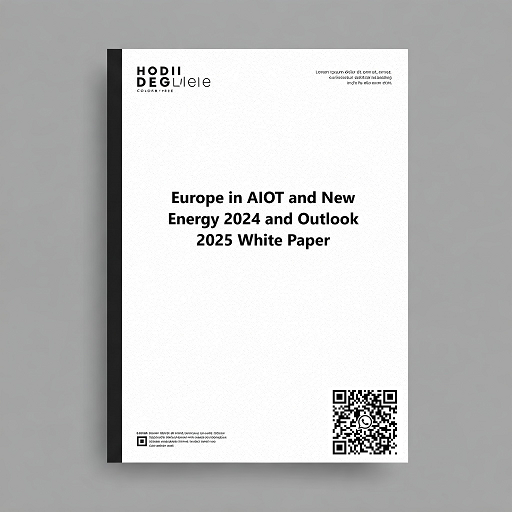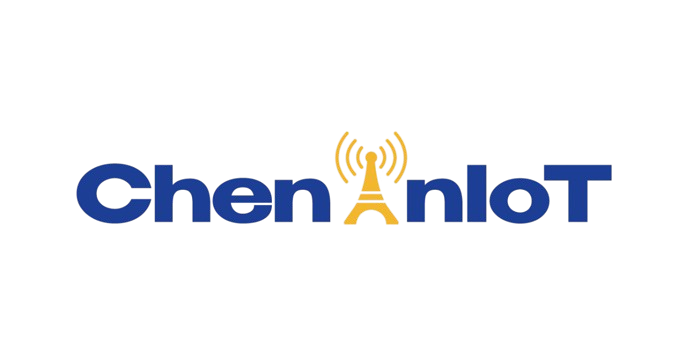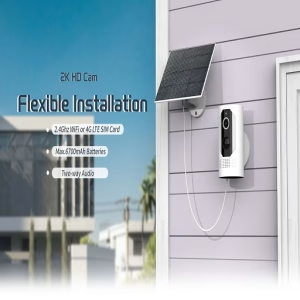Europe in AIOT and New Energy 2024 and Outlook 2025 White Paper
Executive Summary:
2024 has solidified Europe’s position as a critical player in the global technology landscape, with substantial investments and strategic developments in AIOT, renewable energy, and related emerging sectors. This white paper provides a comprehensive analysis of the current investment climate, key trends, and a forward-looking perspective on 2025, tailored for industry elites, investors, system integrators, procurement specialists, and professionals in the electronics and intelligent systems domain.
1. 2024: A Landscape of Strategic Investment and Technological Advancement
1.1 AIOT: The Nexus of Digital Transformation
- Government-Driven Initiatives: European nations have doubled down on AIOT, driven by national strategies like Germany’s “AI Strategy,” France’s “National AI Strategy,” and the EU’s “Digital Decade” objectives. Funding and regulatory frameworks are accelerating AIOT adoption across industries.
- Sector-Specific Innovations: Smart manufacturing, intelligent transportation, and personalized healthcare have witnessed significant AIOT integration. Smart city initiatives, focusing on optimized resource management and citizen well-being, are gaining momentum.
- Data Sovereignty and Ethical AI: The EU’s commitment to data privacy, exemplified by GDPR, and ethical AI development is shaping AIOT deployments. This emphasis on responsible innovation is a defining characteristic of the European market.
- Edge Computing and 5G Integration: The convergence of edge computing and 5G networks is enabling real-time data processing and low-latency applications, vital for industrial AIOT and autonomous systems.
1.2 Renewable Energy: Accelerating the Transition to a Sustainable Future
- EU Green Deal and National Policies: The EU’s “Green Deal” and national renewable energy targets are driving unprecedented investments in wind, solar, and hydrogen energy.
- Smart Grids and Energy Storage: The development of smart grids, advanced battery technologies, and energy storage solutions is crucial for grid stability and efficient renewable energy integration.
- Electric Mobility and Infrastructure: The surge in electric vehicle adoption is stimulating investments in charging infrastructure, battery production, and related technologies.
- Circular Economy and Sustainable Practices: European industries are increasingly adopting circular economy principles and sustainable practices, emphasizing resource efficiency and waste reduction.
1.3 Emerging Sectors: Pioneering New Frontiers
- Quantum Computing and Technologies: Europe is investing in quantum computing research and development, aiming to establish a leadership position in this transformative technology.
- Advanced Materials and Nanotechnology: Investments in advanced materials and nanotechnology are driving innovation in various sectors, from electronics to healthcare.
- Biotechnology and Personalized Medicine: Europe’s strong research base is fostering advancements in biotechnology and personalized medicine, leading to novel therapies and diagnostic tools.
2. Key Investment Trends and Market Dynamics
- Public-Private Partnerships: Collaborative initiatives between governments, research institutions, and private companies are driving innovation and accelerating technology adoption.
- Venture Capital and Private Equity: Investment in European tech startups and scale-ups is increasing, particularly in AIOT, renewable energy, and deep tech sectors.
- ESG Investing: Environmental, social, and governance (ESG) factors are becoming increasingly important in investment decisions, driving capital towards sustainable and responsible businesses.
- Supply Chain Resilience: Geopolitical uncertainties and supply chain disruptions have prompted European companies to diversify their supply chains and invest in domestic manufacturing capabilities.
- Skills Gap and Talent Acquisition: The demand for skilled professionals in AIOT, renewable energy, and related fields is outpacing supply, leading to talent acquisition challenges.
3. 2025 Outlook: Strategic Opportunities and Key Considerations
3.1 AIOT: The Era of Intelligent Systems
- Industrial AIOT and Automation: The adoption of AIOT in industrial settings will accelerate, enabling predictive maintenance, process optimization, and autonomous operations.
- AI-Driven Cybersecurity: As AIOT deployments expand, AI-driven cybersecurity solutions will become essential for protecting critical infrastructure and data.
- Human-Machine Collaboration: The focus will shift towards seamless human-machine collaboration, emphasizing user-centric design and intuitive interfaces.
- AIOT for Sustainability: AIOT will play a crucial role in enabling sustainable practices, such as smart energy management, resource optimization, and environmental monitoring.
3.2 Renewable Energy: Scaling Up and Integrating Technologies
- Grid Modernization and Flexibility: Investments in smart grids, energy storage, and demand response systems will be critical for integrating large-scale renewable energy sources.
- Green Hydrogen and Electrolysis: The development of green hydrogen technologies and electrolysis capabilities will accelerate, contributing to decarbonization efforts.
- Offshore Wind and Floating Solar: The deployment of offshore wind farms and floating solar installations will expand, leveraging Europe’s coastal resources.
- Energy Efficiency and Building Renovation: Investments in energy efficiency and building renovation will play a vital role in reducing energy consumption and carbon emissions.
3.3 Emerging Sectors: Catalyzing Innovation and Growth
- Quantum Computing Applications: Early applications of quantum computing in areas like drug discovery, materials science, and financial modeling will emerge.
- Advanced Materials for Sustainable Technologies: The development of sustainable materials, such as biodegradable polymers and carbon-neutral composites, will gain momentum.
- Personalized Medicine and Digital Health: The integration of AI and data analytics in healthcare will lead to more personalized and preventive medical solutions.
4. Strategic Recommendations for Industry Stakeholders
- Invest in Skills Development: Companies and institutions should prioritize training and education programs to address the skills gap in AIOT, renewable energy, and emerging technologies.
- Foster Collaboration and Partnerships: Collaboration between industry, academia, and government is essential for driving innovation and accelerating technology adoption.
- Embrace Sustainable Practices: Companies should integrate ESG factors into their business strategies and adopt sustainable practices to enhance competitiveness and attract investment.
- Prioritize Cybersecurity and Data Privacy: Robust cybersecurity measures and data privacy protocols are crucial for building trust and ensuring the secure deployment of AIOT and related technologies.
- Stay Ahead of Technological Trends: Industry stakeholders should continuously monitor emerging technologies and adapt their strategies to capitalize on new opportunities.
5. Conclusion:
Europe is poised to lead the global transition towards a digital and sustainable future. By strategically investing in AIOT, renewable energy, and emerging sectors, fostering collaboration, and prioritizing responsible innovation, Europe can solidify its position as a technological powerhouse and create a prosperous and sustainable future for its citizens.
This white paper aims to provide a comprehensive overview of the current landscape and future outlook. ChenAnIoT encourage stakeholders to leverage these insights to make informed decisions and contribute to the advancement of Europe’s technology ecosystem.




